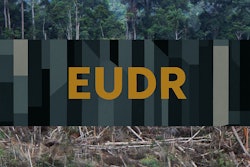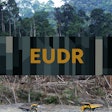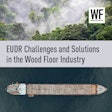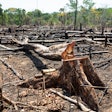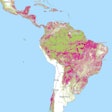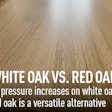

What causes deforestation?
Deforestation isn't caused by the timber industry, but rather the lack of demand for timber products. Forestlands get converted to other uses when owners, managers and even governments perceive other uses to have greater economic benefit.
Since 1989, the findings of the Smithsonian Tropical Forestry Workshop have been widely accepted by scientists, environmentalists and the timber industry. The three core principles are:
- Tropical forests will be conserved only if they have economic value
- Blanket bans and embargoes tend to depress the value of hardwoods and the forests
- Funds obtained from products of the tropical forests must be rechanneled into managing and regenerating those forests.
As most flooring suppliers know, the common practice in the design community is to pursue tighten the specification by pursuing narrow aesthetic values. That narrow spec-FSC-certified and color- or-size restricted-causes a reaction all the way down the product's supply chain.
We would like to see more certification programs accepted. For example, in addition to the FSC label, there are alternatives such as TFF's RIL Verified or the Rainforest Alliance's SmartStep that are highly effective in auditing Sustainable Forest Management (SFM) and legality. But, the design community has had a major influence on suppliers' ability (or inability) to sell tropical woods. Architects just won't accept anything other than FSC right now, and that can be very expensive for a small operation. As a result, companies and communities in tropical regions that are pursuing sustainable forest management and higher value for their forests through routes other than FSC are being excluded from a large portion of the U.S. market.
In addition to cost and lack of demand, wood product manufacturers must meet aesthetic challenges, as well. There has been a trend toward narrow specifications that do not leave room for the natural variations of wood.
What can designers do to help?
There are three actions that designers can take to help.
- Keep specifying tropical wood: Demand ensures the economic viability of the forests and protects them from conversion. Demand encourages well-managed companies to keep investing in training and better forest management. It is worth paying a premium to keep the forest standing.
- Look beyond LEED credits: TFF, Rainforest Alliance and other programs help companies that want to improve their forest management and meet strict certification requirements. When specifying wood products consider tropical timber products that help support sustainability, not just what will get you the most LEED credits.
- Accept natural wood variations: By incorporating wood's natural variability into your designs, you can eliminate byproducts that are at risk of going to waste. Consider using lesser-known species that deliver the same characteristics you have specified.
In many cases, this training acts as a first step toward third-party certification. However, to make further progress, the market must provide the demand. A greater, consistent demand for tropical timber from major import markets is required for suppliers to continue to invest in training and certification.















